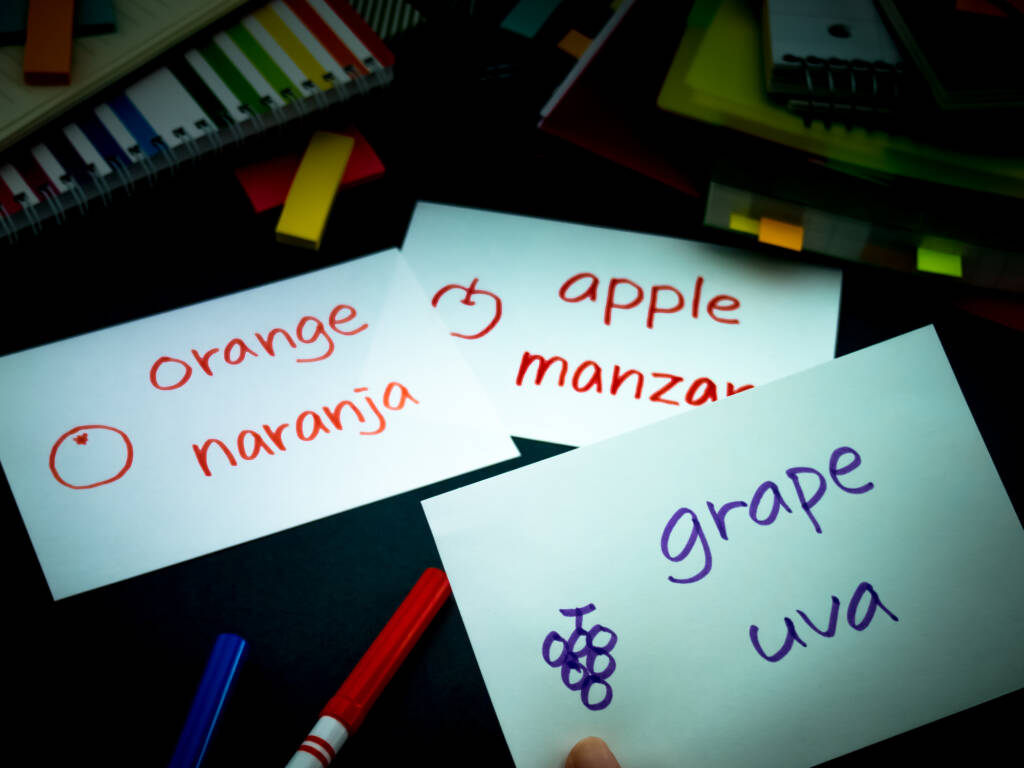
Elementary Spanish Level 5

Elementary Spanish is a fun and interactive way for students to learn about the Spanish culture and language. They will learn through engaging stories that help them understand the language in context. In the beginning, they will focus on listening and speaking skills, and later on, they will also learn to read and write in Spanish.
Elementary Spanish courses provide different types of learning materials and opportunities to practice speaking, reading, writing, and listening to the language. They also include reviews of previous lessons to reinforce learning. Each course is designed to connect students with the authentic culture of a specific Spanish-speaking region through art, celebrations, and traditions. This helps students become global citizens as they progress through different stages of language acquisition: preproduction, early production, speech emergence, and intermediate fluency.
Please view the Elementary Parents Guide for Grades 3-5 with guidance on helping your student transition to online learning and thrive at VLACS.
Major Topics and Concepts
Module One
- Location, countries, and culture of Central America
- Location and culture of Costa Rica
- Greetings, introductions, and goodbyes
- Verbs conocer and encontrarse
- Using gestures to greet people
- Formal and informal greetings
- Different places people live
- Solo, sola and juntos
- Airport phrases and vocabulary
- Differences between English and Spanish sentence structure
- Adjectives and articles agreeing in gender and number
- Asking and answering questions about processes at an airport
- Reading and answering questions about a flight itinerary
- Natural landforms
- Different parts of the inside of an airplane
- Por qué and porque
- Asking and answering questions using por qué and porque
- Flying on an airplane and safety procedures
- Reading and answering questions about an airplane safety manual
- Greetings and introductions
- Vocabulary related to family members
- Using adjectives to describe physical appearance
- Possessive adjectives
- Este and esta
- Asking and answering questions about physical appearance
- Reading and responding to a short story about appearances
Module Two
- Steps to getting on a plane
- Important places in San Jose
- Culture of Costa Rica
- Parts of the house
- Accentuation rules
- The preposition de
- Belongings
- Reading, understanding, and writing advertisements
- Culture of Costa Rica
- Places in the community
- Activities around the house
- Nosotros and nosotras
- Conjugating verbs with nosotros and nosotras
- Reading and acting out a drama
- Writing sentences
- Words and expressions related to food and drinks
- Culture of Costa Rica
- Restaurant words and expressions
- Demonstrative pronouns
- Possessive pronouns
- Belongings
- Read a menu and place an order
- Body parts
- Culture of Costa Rica
- Express and talk about feelings and emotions
- Identify past tense expressions
- Aquí and allá
- Read and write an email
Module Three
- Greetings
- Introductions
- Simple questions
- Words to describe people
- Correct form of the verb ‘gustar’
- Words that describe personality traits
- Aspects of my personality
- Someone’s personality
- Words that describe people’s personalities
- Vocabulary related to the movies
- Movie ticket prices
- Culture of Costa Rica
- Snacks offered in Costa Rican theaters
- Movie poster and its content
- Familiar words, phrases, expressions and sentences
- School subjects
- Inverted question and exclamation marks
- School related vocabulary
- Class schedule and its content
- My feelings and other people’s feelings
- Vocabulary related to amusement parks
- Contractions al and del
- Vocabulary related to amusement parks
- Adverbs ‘rápidamente’ and ‘lentamente’
Module Four
- Common weather terms
- Different aspects of a news report
- Read a news report
- Current events in Central America
- Recognize that extreme weather conditions sometimes lead to natural disasters
- Types of natural disasters
- Identify what colonization is
- Recognize who colonized central America and how long they did
- Compare Spain coming to central America and Christopher Columbus coming to the Americas
- Identify where traditions come from
- Superlatives for most and least
- Recognize the Guatemalan tradition of the festival of la Semana Santa
- False cognates
- Common weather terms
- Aspects of a news report
- News report
- Locate Central America on a world map
- Label the countries of Central America
- Animals of the tropical jungle
- Recognize what jungle animals eat
- Actions taken by good citizens in the home
- Actions taken by good citizens in the community
- Actions taken by good citizens around the world
- Use Es __ que with adjectives
Course Materials
All levels of Spanish require independent reading skills. We recommend students begin Spanish sometime during grades 2 or 3, depending on their reading level. Those who are not yet reading independently can take the course, provided an adult is available to read material to the student.
To achieve success, students are expected to submit work in each course weekly. Students can learn at their own pace; however, “any pace” still means that students must make progress in the course every week. To measure learning, students complete self-checks, practice lessons, multiple choice questions, projects, discussion-based assessments, and discussions. Students and families are expected to maintain regular contact with teachers because, when teachers, students, and parents work together, students are successful.
Required Materials – Please view the list of materials before registering.
Competencies
Greetings, Adjectives and Spanish Vocabulary for Airplane Travel and Family
I can interpret greetings and farewells in Spanish. I can describe the culture of Costa Rica in Spanish. I can interpret words associated with travel at the airport in Spanish. I can identify the parts of the inside of an airplane in Spanish. I can identify extended family members in Spanish. I can interpret adjectives pertaining to physical appearance in Spanish.
News Reports, Citizenship and Spanish Vocabulary for National Disasters and the Jungle
I can identify aspects of a news report in Spanish. I can identify types of natural disasters in Spanish I can describe the colonization of Central America in Spanish. I can describe the Guatemalan tradition of la Semana Santa in Spanish. I can identify nature and animals of the tropical jungle in Spanish. I can interpret actions taken by good citizens in Spanish.
Possession, Pronouns and Spanish Vocabulary for the House, Eating and Emotions
I can identify parts of the house in Spanish. I can interpret chores around the house in Spanish. I can interpret subject pronouns nosotros and nosotras in Spanish. I can interpret words associated with food and drinks in Spanish. I can interpret the preposition de in Spanish. I can interpret feelings and emotions in Spanish.
Question Words, the Verb Gustar, Contractions and Spanish Vocabulary for Personality Traits, Cinema, Fun Activities, and School Subjects
I can identify words associated with personality traits in Spanish. I can interpret question words in Spanish. I can identify words associated with the movies in Spanish. I can interpret the correct form of the verb gustar when identifying preferences of school subjects in Spanish. I can interpret places to go for fun in Spanish. I can interpret the contractions al and del in Spanish.

